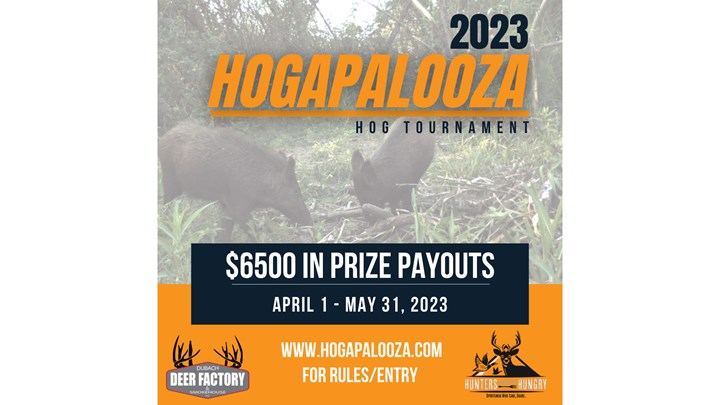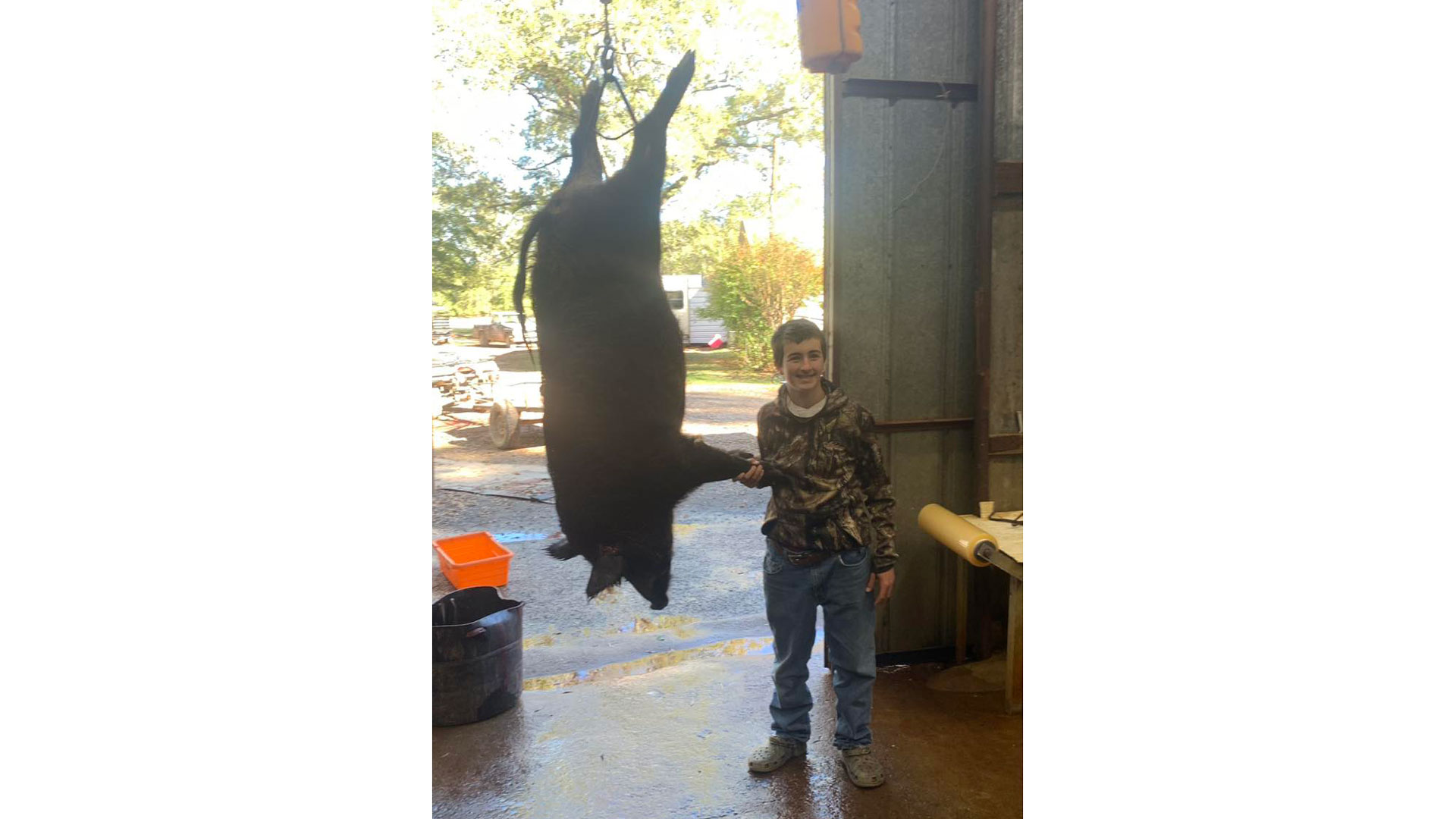
by Brian McCombie - Tuesday, May 9, 2023

The first ever “Hogapalooza” tournament is going on right now in northern Louisiana through May 31—an effort by the state’s Hunters for the Hungry Louisiana program (H4HLA) and the Dubach Deer Factory & Smokehouse in Dubach, La., to reduce feral hog numbers while providing much needed protein to local food banks.
As NRAHLF.org reported in December 2022, veritable “swine bomb” has gone off in Louisiana, with a surging population of 1.2 million feral hogs costing the state an estimated $91 million a year in damages. The four-footed roto-rooters destroy crops, turn cattle pastures into moonscapes, undermine levees and turn clear streams into hog wallows. But what to do about it?
Louisiana sportsmen and H4HLA came up with an idea: Why not harvest these hogs, process the meat and provide that meat to local food banks and similar charitable organizations dedicated to helping the needy? H4HLA reached out to a few meat processors in the late summer and early fall 2022 and then contacted various food banks in the state. The reactions were very positive, and in January 2023 H4HLA formally moved forward with the initiative.
“Since the launch of the program, we've collected 625 hogs—about 23,000 pounds of meat—but the total expectation is unlimited since there’s no season binding us,” Laurie Fontenot, Marketing Director for H4HLA, told NRAHLF.org. “Right now, Hunters for the Hungry Louisiana has 57 processors taking in deer, and 33 of those taking in hogs. You can find full list at h4hla.org/processors.”

H4H covers the processing fees, so there's no cost to the donating hunters. This is essentially the same setup H4HLA uses for deer donations, and venison remains popular with food banks in the state.
“All of the meat is properly labeled and dated according to regulations that are required by food banks,” Fontenot added.
Hogapalooza officially began on April 1 and runs through the end of May. During the tournament, all meat must be donated to Hunters for the Hungry on the day the hogs are harvested, with the processed meat then distributed to the Food Bank of Northeast Louisiana, the Food Bank of Northwest Louisiana, the Food Bank of Central Louisiana, the Greater Baton Rouge Food Bank and Second Harvest Food Bank of Greater New Orleans and Acadiana.
Host processor Dubach Deer Factory & Smokehouse has also put up a total of $6,500 in prize monies. A $5,000 grand prize will be awarded to the four-person team that ends up providing the most hog meat, while three individuals within the registered teams will receive $500 each for the three heaviest feral hogs taken.
While feral hogs are considered an invasive species in Louisiana—and pretty much everywhere else—killing them and letting them go to waste is a contradiction of the basic hunting ethic that says hunters should make use of that which they harvest. This way the H4HLA donation program gives Louisiana hunters a way to remove some destructive hogs and make use of the animals.
As for those who expressed concern that wild hogs could carry various diseases, Fontenot said those fears have been put to rest, explaining that a processor will not accept an obviously sick or diseased hog. She noted that as long as the wild pork is cared for properly and cooked thoroughly, there are no human health issues with the meat provided through this Hunters for the Hungry effort.
No one believes that Louisiana will “eat” its way out of the swine bomb that has gone off as residents statewide continue to watch it explode. But hunters are proving, once again, that they are ready and willing to help with such problems.
“Really, it’s a win-win situation for all,” said Fontenot. “With all the damage these hogs are causing to crops and other wildlife, hunters are helping to reduce the population of these destructive animals, while people in need of food are receiving fresh, organic protein.”
About the Author
NRAHLF.org contributor Brian McCombie is a field editor for the NRA’s American Hunter and writes about firearms and gear for the NRA’s Shooting Illustrated. He is a member of the National Rifle Association and the National Shooting Sports Foundation. Brian likes hunting hogs, shooting 1911s chambered in 10mm and .45 ACP, watching the Chicago Bears and relaxing with his two cats, Peanut Morgan and MikaBear.
E-mail your comments/questions about this site to:
[email protected]
Proudly supported by The NRA Foundation and Friends of NRA fundraising.
